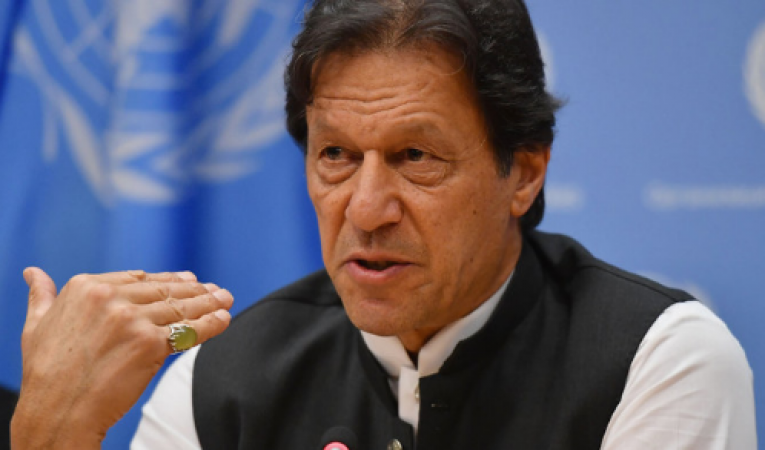
Islamabad: Imran Khan, a former prime minister of Pakistan who has been found guilty of graft and sentenced to prison, was banned from politics on Tuesday, according to an official order.
Khan was declared ineligible according to the Election Commission of Pakistan's (ECP) order, which was seen by Reuters and confirmed by a senior officer.
"Imran Ahmad Khan Niazi is disqualified for a period of five years," the statement read.
Also Read: European scientists formally confirm it. By far, July was the hottest month ever
The order also stated that Khan's constituency would now be vacant. In accordance with Pakistani law, a person convicted of a crime is prohibited from running for any public office for a period determined by the ECP, which may be up to five years beginning on the date of the conviction.
Khan's aide Zulfikar Bukhari told Reuters, "We knew this was inevitable," adding that the party will appeal the disqualification in front of the high court.
We're very confident that it will be undone, he added.
Khan, who has vehemently denied any wrongdoing, was given a three-year prison term on Saturday for illegally selling state gifts that he and his family received while he was in office from 2018 to 2022. He was taken to a prison close to Islamabad after being detained at his Lahore home.
The Islamabad High Court will hear Khan's appeal to overturn the guilty verdict on Wednesday, according to his attorney Naeem Panjutha.
Also Read: "Biden Charts Diplomatic Course Set to Visit Vietnam Amidst China's Shadow
According to the petition, Khan, 70, did not receive a fair hearing and the conviction was "without lawful authority, tainted with bias," according to Reuters.
It claimed that a day before rendering its decision, the court had rejected a list of defence witnesses, calling this a "gross travesty of justice, and a slap in the face of due process and fair trial."
Khan refused to appear at hearings despite numerous summonses and arrest warrants, so the court accelerated the trial.
Since he was removed as prime minister by a vote of no-confidence last year, Khan has been at the centre of political unrest, raising questions about Pakistan's stability as it struggles with an economic crisis.
All eyes should be on the upcoming election now that Khan is temporarily out of the political picture, according to Michael Kugelman, director of the Wilson Center's South Asia Institute in Washington.
He claimed that any delay in the election, which is scheduled for November, would increase public resentment and create more political uncertainty.
If foreign investors and donors find it difficult to invest more money in such an environment, he warned, "that volatility and uncertainty could have implications for political stability but also the economy."
A last-minute $3 billion agreement between Pakistan and the IMF was reached in June. The IMF had been looking for agreement on policy goals among all political parties.
Also Read: Moscow-bound drones from Ukraine were reportedly shot down by Russia
Khan's legal team claims that he should be eligible for a B-class cell with amenities like an attached washroom, newspapers, books, and a TV but is instead being held in appalling conditions in a small, so-called C-class cell in a prison in Attock, close to the capital Islamabad.
He had made a request for an A-class cell with all the amenities he was qualified for.
Khan himself had advocated for uniformity in prisons, according to Interior Minister Rana Sanaullah, who spent several months in jail on drug trafficking charges he claims were made up during Khan's administration.